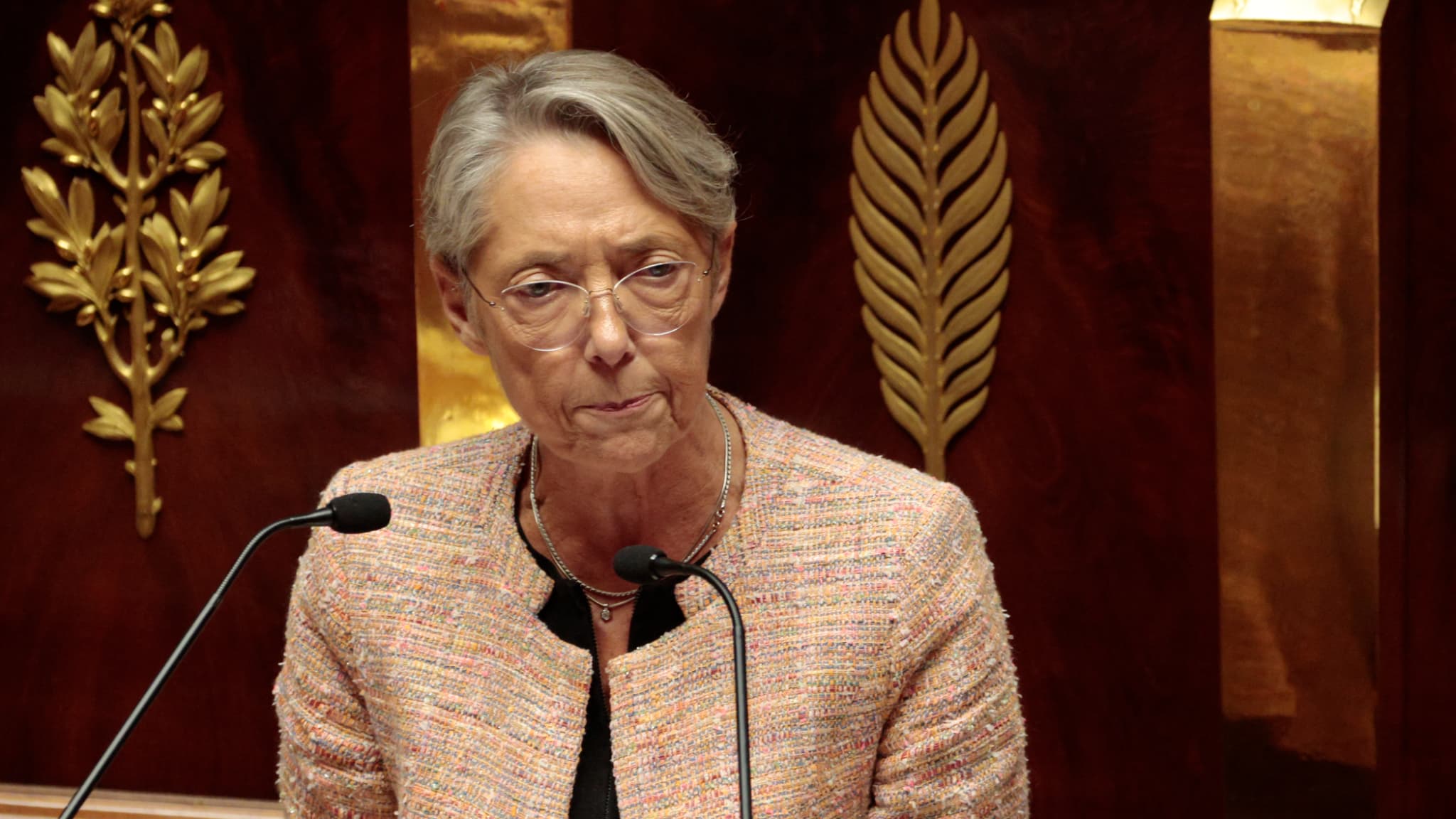Zuckerberg's Next Chapter: Navigating The Trump Presidency

Table of Contents
The 2016 Election and Facebook's Role
The 2016 US presidential election became a watershed moment, highlighting the vulnerabilities of Facebook's platform and its role in disseminating misinformation. Zuckerberg and the Trump administration found themselves intertwined in a complex relationship, marked by both cooperation and conflict.
Foreign Interference and Misinformation Campaigns
- Cambridge Analytica: The harvesting of personal data from millions of Facebook users by Cambridge Analytica, a political consulting firm working for the Trump campaign, exposed significant security flaws and raised serious ethical concerns.
- Russian Troll Farms: Evidence emerged of extensive Russian interference, using Facebook to spread disinformation and sow discord among American voters. These campaigns leveraged targeted advertising and the organic spread of fake news to influence public opinion.
- Impact on Public Trust: The scale of the problem significantly eroded public trust in Facebook and its ability to protect user data and prevent the spread of misinformation. Zuckerberg's initial responses were widely criticized as inadequate and dismissive. Reports estimate millions of users were exposed to fabricated content.
Content Moderation Challenges
The 2016 election dramatically intensified the challenges of content moderation on Facebook. The platform became a battleground for competing narratives, often fueled by highly partisan and emotionally charged content directly related to the Trump administration and its policies.
- Free Speech vs. Harmful Content: Facebook grappled with balancing its commitment to free speech with its responsibility to prevent the spread of harmful content, including hate speech, misinformation, and incitement to violence. This delicate balancing act became even more complicated in the highly polarized political climate.
- Evolving Content Moderation Policies: In response to the criticisms, Facebook implemented various content moderation policies, including increased fact-checking initiatives, stricter advertising guidelines, and the removal of more misleading content. However, these measures were often met with criticism from both the left and the right, highlighting the complexities of content moderation in a deeply divided society.
Navigating Political Polarization and Public Scrutiny
The Trump presidency brought unprecedented levels of political scrutiny to Facebook and its CEO. Zuckerberg's role in shaping public discourse became a central point of debate, impacting Facebook’s business and leading to major changes in its approach.
Increased Political Scrutiny
- Congressional Hearings: Zuckerberg faced numerous appearances before Congress, enduring intense questioning about Facebook's role in the 2016 election, data privacy concerns, and content moderation practices.
- Public Backlash: The public outcry over Facebook's handling of misinformation and data privacy led to calls for greater regulation of social media platforms. This intensified public pressure forced Facebook to take a more proactive stance on these issues.
- Zuckerberg's Public Appearances: Zuckerberg’s public testimony before Congress highlighted the difficulties of navigating the intersection of technology, free speech, and political influence.
Impact on Facebook's Business Model
The increased regulatory scrutiny and negative publicity surrounding Facebook posed significant challenges to its business model.
- Advertising Revenue: Concerns about the spread of misinformation and the misuse of user data impacted advertiser confidence and potentially impacted Facebook's advertising revenue.
- User Growth: Negative press and privacy concerns also potentially affected user growth and engagement.
- Changes in Business Practices: Facebook implemented significant changes in response, including increased investment in content moderation, improved data security measures, and a greater emphasis on transparency.
The Legacy of the Trump Era on Facebook's Future
The Trump era left an indelible mark on Facebook, significantly impacting its approach to content moderation and the broader landscape of online political discourse. Zuckerberg's next chapter will be defined by these lasting consequences.
Long-Term Effects on Content Moderation
- Shifting Approach: The experience of the Trump presidency forced Facebook to refine its content moderation strategies. This included investing in artificial intelligence, hiring more content moderators and establishing stricter guidelines.
- Effectiveness of Changes: The long-term effectiveness of these changes remains a subject of debate. While Facebook has made efforts to improve, challenges persist in addressing misinformation, hate speech, and harmful content.
The Future of Political Discourse on Social Media
The Trump presidency underscored the crucial role of social media platforms in shaping political discourse. The challenges of navigating misinformation, polarization, and foreign interference remain significant.
- Combating Misinformation: Developing effective strategies to combat the spread of misinformation and disinformation is critical to the health of online political discourse.
- Mitigating Polarization: Addressing the issue of political polarization on social media requires innovative solutions that promote constructive dialogue and understanding.
- Improving Online Political Discourse: A collaborative effort among social media platforms, policymakers, and civil society organizations is essential to fostering a more healthy and productive environment for online political discussions.
Conclusion: Zuckerberg's Next Chapter: Lessons Learned and Future Outlook
Zuckerberg's navigation of the Trump presidency represents a critical juncture in the history of Facebook and the broader landscape of social media. The era highlighted the inherent tensions between free speech, content moderation, and the prevention of harmful content. The lasting impact on Facebook’s policies, its relationship with the public, and the future of political discourse online are profound and warrant continued scrutiny. Understanding Zuckerberg's approach to navigating the complexities of political influence on social media is crucial. Continue exploring this critical issue and share your insights in the comments below!

Featured Posts
-
 Future Of Nordic Defense Collaboration Between Sweden And Finland
Apr 22, 2025
Future Of Nordic Defense Collaboration Between Sweden And Finland
Apr 22, 2025 -
 Resistance Grows Car Dealerships Oppose Ev Mandate
Apr 22, 2025
Resistance Grows Car Dealerships Oppose Ev Mandate
Apr 22, 2025 -
 The Selection Of A New Pope A Look Inside Papal Conclaves
Apr 22, 2025
The Selection Of A New Pope A Look Inside Papal Conclaves
Apr 22, 2025 -
 Robots Vs Humans The Ongoing Battle In Nike Shoe Production
Apr 22, 2025
Robots Vs Humans The Ongoing Battle In Nike Shoe Production
Apr 22, 2025 -
 Turning Poop Into Prose An Ais Journey From Scatological Data To Podcast Gold
Apr 22, 2025
Turning Poop Into Prose An Ais Journey From Scatological Data To Podcast Gold
Apr 22, 2025
Latest Posts
-
 Elizabeth Hurleys Hottest Cleavage Moments A Revealing Look
May 10, 2025
Elizabeth Hurleys Hottest Cleavage Moments A Revealing Look
May 10, 2025 -
 Britannian Kruununperimysjaerjestys Taessae On Paeivitetty Lista
May 10, 2025
Britannian Kruununperimysjaerjestys Taessae On Paeivitetty Lista
May 10, 2025 -
 Le Modem Et Renaissance Elisabeth Borne Pour Une Fusion Et Une Ligne Politique Unifiee
May 10, 2025
Le Modem Et Renaissance Elisabeth Borne Pour Une Fusion Et Une Ligne Politique Unifiee
May 10, 2025 -
 Clarification Politique Elisabeth Borne Pousse A La Fusion De Renaissance Et Du Modem
May 10, 2025
Clarification Politique Elisabeth Borne Pousse A La Fusion De Renaissance Et Du Modem
May 10, 2025 -
 Renaissance Et Modem Vers Une Fusion Pour Clarifier La Ligne Gouvernementale
May 10, 2025
Renaissance Et Modem Vers Une Fusion Pour Clarifier La Ligne Gouvernementale
May 10, 2025
